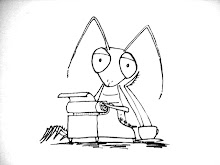In a moment of foresight, I bought replacement wipers for the car. I left them in the garage for later. Of course, I only remembered they were there when I was out driving in the rain. So much for foresight.
The idea came to me fully-formed one day as I watched the forecast: sunny today, thunderstorms tomorrow. Hmmmm. Oh, right! Put the wipers on the car! I went to do that before I got distracted.
If your car is like mine, you know it takes about 30 seconds to change a windshield wiper. Old one off, new one on. Wiper number one, no problem. I opened the package for wiper number two. Uh-oh. Where's the little plastic adapter? Hm. I must have dropped it. Funny, I didn't hear anything fall. I spent a few minutes crawling around the driveway looking for it. Nothing.
Maybe it's stuck in the package? No. Was it even there at all? Maybe not. Well, if I ever did have it, I didn't now. Fortunately, I had a receipt. Back to Mal-Wart to exchange it. Yay, hooray.
"Oh, you're going to Wal-Mart?" my wife says hopefully. "Can you pick up a couple of things?" She quickly dictates a list of about fifteen items. I scribble it down. My afternoon is beginning to go flush, gurgle, gurgle. I'm less than delighted, but it could be worse.
I pull in to the parking lot. It's vast and nearly full. Damn. The place is going to be a zoo. I park about a quarter-mile from the entrance and hope the returns line isn't Soviet-long. I inspect my pockets. List? Check. Receipt? Check. Keys? Check. I lock the car and head for the store.
As the automatic door slides open, my inner-nag pipes up: "Hey, Bozo! You left the wiper in the car!" Double-damn. Back to the car to get it. Now I'm starting to get irritated. I raise my eyes and utter a prayer of sorts, heartfelt, if somewhat less than devout. "Come on, Lord... can you help me out here?" I turn back toward the car and... what the hell?!?
On the ground is an empty windshield wiper box. Same brand. Same size.
Now I know people often change their wipers right in the parking lot. In fact, I intend to do just that. I think I would have noticed that bright yellow box on the way in, though.... You're kidding me, right? Slowly, I pick up the box and give it a little shake. It rattles faintly.
No way.
There it is. One plastic adapter, still in the package yet. I just have to laugh. The day brightens. My foul mood evaporates. I'm grinning like a fool as I wade through Mal-Wart hell. I have a smile for everyone. People eye me nervously as I laugh to myself. The checkout line is Soviet-long. Who cares? I wait with uncharacteristic patience and good cheer. I'm still chuckling as I install the wiper. I drive home and let anyone who wants cut me off. I smile and wave at them. I even use all five fingers.
***************
Was the whole day just a set-up for the punch line? My thoughts are not your thoughts, nor are my ways your ways says the Lord. Ask and you shall receive, that your joy may be complete. Could it all be a coincidence? No, I believe it was a deliberate practical joke, a bit of Divine Comedy from the Master Himself. Who could pull it off better? Truly, I was touched by the hand of God... and He slugged me in the arm and said: "Gotcha!"
The best jokes are the ones you never see coming.
Respectfully Yours,
Cricket










